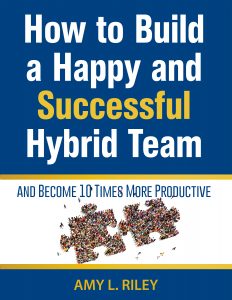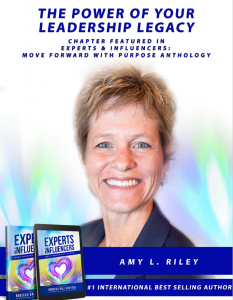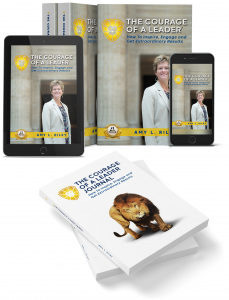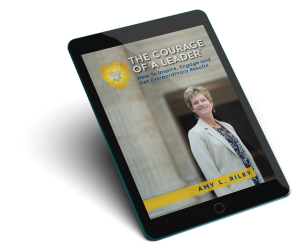My guest today on The Courage of a Leader podcast is Nicole Greer. Nicole says, name the challenge you’re facing in your culture, and she will help you solve it. From culture shifting keynotes and workshops, executive coaching or long-term partnerships, her work helps you develop your next leaders.
In this episode, Nicole shares with us 2 acronyms for powerful, pragmatic, easy-to-implement strategies for immediate results and more than a handful of valuable resources.
This is not an episode to miss!
About the Guest:
Nicole Greer is an Executive Coach, Consultant, and Recruiter with Vibrant Coaching and Consulting Inc. From culture-shifting keynotes and workshops, executive coaching, or long-term partnerships, Nicole’s work is to help you develop your next leaders.
Nicole has lead marketing and training for 80+ sites across the U.S. Later, she went out and got almost every credential in leadership development you’ve heard of. You can see the list on her website: https://vibrantculture.com/certifications/
Since that time, Nicole has joined organizations in almost every industry to BUILD VIBRANT CULTURES where employees take initiative and true ownership in their work.
https://www.linkedin.com/in/build-a-vibrant-culture-nicole-greer/
About the Host:
Amy L. Riley is an internationally renowned speaker, author and consultant. She has over 2 decades of experience developing leaders at all levels. Her clients include Cisco Systems, Deloitte and Barclays.
As a trusted leadership coach and consultant, Amy has worked with hundreds of leaders one-on-one, and thousands more as part of a group, to fully step into their leadership, create amazing teams and achieve extraordinary results.
Amy’s most popular keynote speeches are:
- The Courage of a Leader: The Power of a Leadership Legacy
- The Courage of a Leader: Create a Competitive Advantage with Sustainable, Results-Producing Cross-System Collaboration
- The Courage of a Leader: Accelerate Trust with Your Team, Customers and Community
- The Courage of a Leader: How to Build a Happy and Successful Hybrid Team
Her new book is a #1 international best-seller and is entitled, The Courage of a Leader: How to Inspire, Engage and Get Extraordinary Results.
https://www.linkedin.com/in/amyshoopriley/
Link mentioned in the podcast
The Inspire Your Team assessment (the courage assessment): https://courageofaleader.com/inspireyourteam/
The Courage of a Leader, How To Inspire, Engage and Get Extraordinary Results (book): https://courageofaleader.com/the-courage-of-a-leader-book/
Carol Dwek, fixed and growth mindset: https://www.ted.com/talks/carol_dweck_the_power_of_believing_that_you_can_improve?language=en
Fred Kiel, Return on Character (book): https://www.amazon.com/Return-Character-Fred-7-Apr-2015-Hardcover/dp/B011T7KHTG
Jim Rohn, You Tube: https://www.youtube.com/channel/UC2QBSbC2_rZSIzJdU0oKwEQ
Brian Tracy, Eat That Frog (book): https://www.amazon.com/Eat-That-Frog-Great-Procrastinating/dp/162656941X
Thanks for listening!
Thanks so much for listening to The Courage of a Leader podcast! If you got inspired and/or got valuable leadership techniques you can use from this episode and think that others could benefit from listening, please share using the social media buttons on this page.
Do you have questions or feedback about this episode? Leave a comment in the section below.
Subscribe to the podcast
If you would like to get automatic updates of new The Courage of a Leader podcast episodes, you can subscribe to the podcast on Apple Podcasts. You can also subscribe in your favorite podcast app.
Leave us an Apple Podcasts review
Ratings and reviews from our listeners are extremely valuable to us and greatly appreciated. They help our podcast rank higher on Apple Podcasts, which helps us ignite The Courage of a Leader in more leaders! Please take a minute and leave an honest review on Apple Podcasts.
Teaser for next episode
Stay tuned for our next guest podcast episode – Help Them Grow or Watch Them Go – with Julie Winkle Guilioni. Julie’s got easy-to-implement advice about how to start and have truly effective conversations about meaningful development.
Transcript
My guest today on the Courage of a Leader podcast is Nicole Greer. Nicole says Name the challenge you're facing in your culture and she will help you solve it. She's a dynamo. She's high energy. You'll love hearing from her. And in this episode, Nicole shares with us two acronyms for powerful, pragmatic, easy to implement strategies that will have you having more meaningful connections with your team members, and will get you immediate results. She also shares more than a handful of valuable resources. So this is not an episode to miss. I'm glad you're here.
Amy Riley:Welcome to the Courage of a Leader podcast. This is where you hear real life stories of top leaders achieving extraordinary results. And you get practical advice and techniques, you can immediately apply for your own success. This is where you will get inspired. And take bold, courageous action. I am so glad you can join us. I'm your host, Amy Riley. Now, are you ready to step into the full power of your leadership and achieve the results you care about most? Let's ignite the Courage of a Leader.
Amy Riley:Because I'm very excited to have you here today. I know there are many things that you and I could have talked about leadership related. I'm excited that we have chosen to speak to the art of effective one on once. Thank you for being here.
Nicole Greer:Oh, I'm delighted to be here. Amy. Thanks for having me.
Amy Riley:Yeah. So Nicole, simultaneously, I will hear messages like having more than one system, most important thing that you can do as a leader. And the thing that employees want the most is attention. But then I also hear from leaders. My team member doesn't often have that much to say. So we've gotten away from having one on ones or I'm so busy, right? I've got so many direct reports. I don't have time to do the one on ones. So why do we want leaders having one on ones? Why is this important? One
Nicole Greer:of our favorite people on the planet John Maxwell, right? So everybody's got 37 of his books on the shelf. He'll tell you that leadership is influence and here's what I know, you can't influence anybody if you're not talking to him. You have to sit down with people and have a conversation. And I think the one thing you said about how some people say my my person doesn't have much to say a couple of things there. One would be that if you have a strong relationship, usually people will engage readily. Even if they're a quote unquote introvert or something right, or they have a personality that's not very talkative. If the leader creates a little container that safe and it's got this big buzzword, right, right around everywhere, psychological safety, if that's happening, that person will open up in arms, or you do have a lot to chat about. Because you're asking this person, please don't miss this everybody. You're asking this person to perform it to do it at a better level every time. And so I think it's a lot of the prep on behalf of the leader so that you come in, and you've got some powerful questions that you've prepared, you know, a one on one is not we're gonna go have a conversation. A one on one is we're gonna go have a dialogue. And that is completely different from a conversation conversation was like, Amy, how're you doing? Yeah, great. To meet you. And that's it. I mean, that's a conversation. But we're not talking about a conversation. We're talking about a developmental, you know, meeting, we're going to dialogue about where you are and where you need to go. And so the why behind it is because if you have better team members, you're going to have a better team. If you have a better team, you're going to have better production. If you have better production, you're going to have more profits. If you have more profits, then you're going to build the business even further. Everybody's gonna make bonus. There's a lot of really good reasons to have one on ones but it's really basically about that relationship and building that relationship so you can build the person and when you build a person one at a time, you build a vibrant culture.
Amy Riley:Excellent. Nicole, I love where you started. leaders want to influence their team's the performance of their teams and how do you do that you need to have a relationship with these individuals. And once you have that, you're looking at how do we perform at a high level? How do we improve over time, it helps create production profit results. And in order to do that, we want to have a safe atmosphere. And we want to create dialogue. Hunter percent, so many good things you've said already. Oh, gosh.
Nicole Greer:You know, somebody who's vibrant is lit from within, like, they've got this energy inside of them. And you're going to take that energy, and you're going to surround it around your employee. And the acronym lit is a little acronym. Okay, fine. Let's say let's get lit. And now the list is this. The first thing leaders need to do is lead with clarity, lead with clarity. Okay, so the L is is essential. So let's say that Amy Riley is my employee, wouldn't that be a good day in my life? Gaby just so much fun. To me. Fantastic. Here's the thing, if you don't come to that one on one with clarity, what do you got to do with Amy? And, and here's the thing, what's her career path? Mm hmm. Huh. And here, here is my leadership philosophy, and you can steal it shamelessly for me. When I work with people I say to them, on my watch, you're gonna have an amazing career. You know what I mean? Like, that's my whole goal is to put you on a path. Probably similar, you may not even believe you're capable of yet. But I'm gonna do everything in my power to get you developed to your full potential
Amy Riley:lead with clarity, clarity about what are you getting out of the dialogue today, right, and this team members performance in the near future, but also further into the future? What do you see as possible for their career? What are you envisioning for this person? Like you said, that might not even be able to envision for themselves?
Nicole Greer:The the lead with clarity could be as big as a knee, I want to get you promoted, there's gonna be no, John is retiring, and I want to get you promoted. Here's where you are, here's where you need to be. Here are the competency gaps. Let's explore them all. I mean, this could be a seven hour conversation, right? It could be huge, right? Or it could be that Amy's cooking right along. And I've recently read a very good book, maybe in the jungle, maybe it's Amy Riley's book. Okay, incorrigibly or they might, let's say it's that book. And I I say to her, You know what I did? Amy, I bought you a book. Yeah. And I want you to read it. With me looks at me goes well, I'm not even a leader yet. What are you giving me this book for? How would you think about leadership? Yeah. Okay. You know, and so, she might not say a lot, but you say, you know, I read, you know, the pillars, about leaders. And I'd like you to read. And then when we get together next time, we'll start talking through the pillars. So you can actually do like a book club with your employee, you know, on. It's just a one on one book club. So it could be as simple as that. Or it could be as big as let's get you ready for this? You know, big position. Nicole, I'm
Amy Riley:so glad that you said let's go back to lead with clarity for hot second, because I love that. All right, that often we say all the check ins, the one on ones, the touch bases, that is the team members time, right? They're supposed to come with what they want to talk about. But you're saying leaders come with your clarity. If it performance is great, you might introduce a new book, you might give positive feedback on exactly what they're doing. That's going so well. There might have been a lot of new projects that have been launched recently. Let's check alignment. What are the priorities? Right? You can be talking about career development and how to get them ready. And that might be a dozen touch base calls where you're exploring that. Really important. Yeah.
Nicole Greer:And you know, sometimes I hear this little voice. It's like sometimes people I have in my classroom when I'm doing training. They're like, well, not everybody wants that. Nobody wants to beat about that. I'm like, Oh, well then we probably don't have the right person on the bus. Do we want working for us people who want to be developed right, so we can go down the bunny trail? Oh, Carol Dweck stuff, everybody. Look her up the WEC K Carol Dweck her she's got this whole thing called mindset, growth mindset or a fixed mindset. And so what we want to do is we want to feed people who have a growth mindset. Yeah, we've got somebody who doesn't, you know, do I have to meet with you? Oh, hello, red flag. Yeah, yes, you're my employee. So yes, you have to me with me, and then what you're trying to do from that dialog, is that you want to talk to him about what a growth mindset is, you know, you're you're trying to talk somebody, persuade somebody moves somebody to a new level where they have better thinking, sometimes the one on ones about their thinking. So there's a whole lot of why behind having these one on ones. Yeah, I'll tell you most important you come with an agenda your employee comes with the agenda covered both?
Amy Riley:Excellent. Yes. There's a lot to talk about there in the L enlyt.
Nicole Greer:All right. So you want to integrate integrity, integrate integrity. All right. So here's another book and by write this down, and by the way, leaders read everybody, so I'm sure why she telling us all these books, because you should read all these books are so good. All right. So this book is called Return on Character. And it's by Fred Kiel. And Fred Kiel says in his book, and it he's a fancy PhD person that didn't research and all the stuff. And what he found out is that if you have conversations about character, character, equal sign integrity, right, that people, you're going to have listened to this five times return on assets. So everybody listening, I just want you to think about how much is the building that you're in? Worth? How much is the property worth? How much are the machines and the stuff and whatever worth? And then what have you had five times return on that? Now, when you talk about integrating integrity, what you want to do is you want to hold people accountable for developing the quality of their character. Now, this is a very sticky place, Amy, because everyone thinks they have integrity. Yes. Yeah, of course. Yeah. I used to do Yeah. Yeah. And so here's the thing, integrity is so ginormous, the word is like its wholeness. And, you know, here's the thing, Nicole Greer tries hard, she gives a lot of energy to things, but I'm not perfect. And I am aware of that, painfully aware of that. And so there are things I need to work on. So for example, just think about a character trait that you might even confess that you love. So sometimes leaders will say, I'm not very patient. Oh, well, there's a place to integrate integrity. Okay, fine. This time around. We'd like your your employees, the people that report to you. So I'll just give you a quick example. So I had a gentleman that I was working with you as a salesperson. Now, I need the salespeople that I worked with to have serious confidence, right? Yes. I want them to be self assured. Now, I don't want you to be an arrogant, so and so. Yeah. Right. He goes out in sales, and he does a fantastic job. So is he being arrogant with his customers? Uh huh. No, but when he comes back to the home office. And so it's like, not what Lee comes on. You know, I'm the number one sales guy. So everybody bound down and let me break the rules here and there. I can coach him, of course, but the leader needs to have the conversation also with him about I need you to be self assured, not overdone to arrogance, right. I need you to be patient, I need you to be disciplined to follow the rules. Phil, I have this list. It's called the tilt factors, okay, learn to tilt into all these different character traits, and take them on. And I'd be glad to share that with everybody. It's a fantastic coaching tool and a great, you know, self assessment tool.
Amy Riley:Terrific. Is that something that we can get online, we can share the URL in the in the show notes. 100%. We can fantastic. Yeah, I love how you're talking about integrity. And I love that you're expanding that. It's the holistic definition of integrity, which includes the different aspects of our character. Because when and most people who have any kind of level of self awareness, know that there's aspects of my character that I love, and I cherish and I want to share with the world. And then there are aspects of my character that I'm like, oh, shoot, that's not out. I was good. I can not along with impatient. I'm impatient, right? I'm looking to get to get things done here. I'm driving in this moment, and having conversations about character, how do you lean into those character traits? Where you shine and are a gift to our world? And where did it Where do you put character traits on your radar? Right and look to develop those gauge with those in a different way?
Nicole Greer:Yeah, I think a lot of leaders don't want to have a conversation about character. Because they might feel like, you know, while I'm not perfect, well, here's the thing. It needs to go kind of all the way to the top of your CEOs being coached by somebody like you New Riley are so and so they're being held accountable by an external coach. But really all the way from the top down inside the organization, there needs to be conversations and this list of 48 traits, I mean, who could have 48? Like, down pat, another quick example. So this is a very common one, especially from like a strong personality leader. They'll throw it right out there. They'll say, Well, you know, I'm just blunt. I just tell it like it is. Then you're like, Okay, well, everybody's injured after they sit with you or tossing around meeting with you. They're all like, pouting in the corner and sad and don't like you. So what's, what's blunt dialed back a little bit? Well, it's honesty, you know, and here's the thing about blunt people. Oftentimes, they're correct. Yeah, what is the truth? Yeah. So they hit you with the truth. Instead of just like, you know, I'm gonna have in everybody write this down. This is my little clutch phrase, for when I'm going to deliver something that I think people don't want to hear. I say, You know what I'm gonna do. I'm gonna practice truth telling, honesty, and candor, and I say it just like that. And people go, okay, you know, but like, I braced him. I got him ready right now. And then I'll say, you know, I don't think this is working. And here's why. So there's a way that insert your honesty without just blowing people out of the water with it, you know? So, that's just another good example. So if we integrate integrity, I think the impatience comes down, the arrogance comes down, the bluntness comes down, then we can get more done. Yeah,
Amy Riley:well, then you get that 5% Return on assets. Okay. Nicole, before we get into the T, yeah, I know I'm sitting on the edge of my seat, but I want to tell listeners a little bit more about you. Okay, Nicole Greer is an executive coach, consultant, recruiter, author, and speaker for Vibrant Coaching and Consulting. Nicole says main the challenge you're facing in your culture, and she will help you solve it. From culture shifting keynotes and workshops, executive coaching, or long term partnerships. Her work is to help you develop your next leaders, Nicole has led marketing and training for 80 plus different sites across the US, since she also has gone out and got almost every credential and leadership development you've heard of. And you can see the list on our website. It's vibrant culture.com. Since that time, Nicole has joined organizations in almost every industry to build vibrant cultures where employees take initiative, and true ownership in their work. I always enjoy connecting with you, Nicole, I'm glad you're here to be of a leader podcast. Well, I'm delighted to be here. And you have a terrific experience, Nicole, and quite obviously a lifelong learner, you're always exploring and adding to your skills and knowledge, we need to know what the T is. Okay,
Nicole Greer:so the t alright, so don't forget, we're talking about one on ones, right? So I'm gonna sit down, we're gonna have a game plan. And we're gonna leave this person with clarity, we know what they want to be when they grow up, we've gotten career path for them, we're bringing something of value to the meeting, don't just don't show up and hope it works out. That's a bad idea. And then we're going to integrate some integrity talk, because five times return on assets. And then the last thing is the T, which is transform the ordinary. So I go places, and you know, I do the training thing, just like you and me and, and people will say, Well, this is the way we've always done it. And I'm like, I know, I'm painfully aware that this is the way you have always done it. We have to be change management people. We have to be change agents change catalysts. And so it's always looking at how can I transform the the ordinary into the extraordinary. So I'm gonna I'm just gonna give everybody a really simple example. If you're over 40 You probably know this. If you're under 40, you might need to Google these things. But when I was a young girl, I had this thing called a Walkman. And it was a cassette player with headphones. Nice. I put my Loverboy or my REO Speedwagon. In my Walkman, I listened to it over and over and over and I only had a choice of 10 songs. So I'd be okay. Then it switched to the Sony Walkman that was a CD player. Now, this might have been a good idea, but if you tried to jog or run or jump around, it just skipped and it was terrible. So it didn't last very long. Now, Steve Jobs comes along and I don't know if y'all remember on the way back, you know, he's in his black turtleneck with this dark blue jeans on and he's at Apple and he's having these interesting Seeing the iPod Nano people? Yes. So he has his front gene pocket. And he says, You know, I got 10,000 songs in my pocket. And we're like, what? Because we just have to
Amy Riley:unbelievable. Yeah. And
Nicole Greer:that's transforming the ordinary into the extraordinary. Now, it's the same with your people, I want you to sit right now and think about who's on your team. I bet you you have watched these people on your team and thought they can do better. Every leader I talked to says that's true. I looked at my people who said they could do better, they could do more, although they could work harder and smarter, and realize some kind of skill or potential or untapped talent, and you see it. So it's just like, maybe some of you have this thing at the house. It's a phenomenon called children. I have a 30 year old and a 23 year old, and I still look at them. And I'm like, Oh, I'm untapped potential. You know, I'm having conversations with both of them about what they could do with our life. And it will be that way till I'm 100. And they're 70. People need encouragement, they need a conversation about what they could do. And so the heavy lifting of leadership is that we, we look into their life, and we say, You know what, I'm gonna ask her to do this. So I've got a little story, if we've got time for about a time leader tapped into my potential. Great. Okay, so I used to run beautiful apartment communities, all of the down the east coast and over to Texas, okay. And love had a love hate relationship with property management. I love people when they behaved. But when they partied till three in the morning, I had to get out of bed and go shut the party down. I didn't like him very much. So it's like any job, there's the highs and the lows. So I'm reading all of these beautiful apartment communities. And one day, the leader comes to me and he says, Nicole, I want you to run the apartment community you're running. But I also want you to be the marketing director for Charlotte, North Carolina. Kind of like, okay. And I said, Well, what do I need to do? And so he had prepared, he was leading with clarity. So he handed me this piece of paper. And he said, here's what I want you to get done. And don't miss this, Nicole, I want you to keep running this apartment community. I mean, make that p&l Sing, but you find time to leave the building, get your people to handle things while you're not there. And you go to social events and do this stuff. And you you market. The apartment communities in Charlotte just want to buy. And I said, Okay, well, sidenote I own to my husband. He's like, Well, how much were they going to pay you? And I said, Oh, I didn't ask that question. Because, you know, you have like, on your team, you've got people who are hungry, to be noticed, hungry, I have experienced. I mean, I didn't realize I was gonna be allowed to leave the property and go out and network, which I don't know. I'm so naturally good at that. It's not even funny. Yeah.
Amy Riley:And so John Gray saw that you saw that in you. Yep. And so
Nicole Greer:I was using my social skills, my Soft Skills, as they say, at the apartment community to keep at least up and running was full, you know, my whole job was to raise rents at this point, you know, to make the p&l Sing. But then he's like, I'll send her out here and do this. Now. There was going to be a marketing director position opening up. Well, here's, here's the news. I did not get the marketing director position. I got the training director position. Okay.
Amy Riley:Well, that makes sense. Do
Nicole Greer:well, he tried me on in that position. But I think after he, like, don't miss this, started having one on ones with me to check in about the marketing. He's like, no, no, no, that's not wrong. We'll put her I'm gonna put her with my brand new employees. So they get it. He didn't know that. That's what I was gonna do. As long as it was too early. We all none of us knew about vibrant at the time. This is long time ago. Yeah. Like that is transforming the ordinary into the extraordinary. So, you know, now I ended up training all the managers.
Amy Riley:Mm hmm. Yeah. So I'm also hearing from you, Nicole, that in between effective one on ones leaders, you're observing, you're thinking you're reflecting on what's going on with your team members. I notice all questions that they asked in this meeting had to do about customer impact. Well, maybe a customer facing role would be good for this person. Oh, I noticed they're great at speaking up in meetings, what will be some other opportunities to give them visibility? And often things that we do Do well, the individuals can be almost, it's also visible to them. Because we have an innate strength, we just do it. It's just the way that we show up. It's just the way that we organize ourselves or think about something or approach a project. But if leaders are looking to be pretty easy to see what team members naturally step into
Nicole Greer:100%, and there's this this concept called unique ability, and it's a concept by Dan Sullivan. I'm sure you're familiar with that one, too. And that's because Amy and I are reading them books, and they say it. And so go get Dan Sullivan's book, Anique Ability. And he said, you know, like you said, you're so close to it, you don't even know it. And in fact, people compliment you on it. And you're like, let's not big deal. Right? Wait, okay. Well, then everybody do that guy? Oh, no, everybody does not do that. And so where could that leader put this human? And there's this concept I learned a while back long time ago, it was called, you know, position description. So for example, if you have like three positions that are exactly the same, okay, like, let's say you have three regional managers. Okay. Well, one regional manager has a unique ability to interview and to recruit, you know, you could have that regional manager held the other two who are great at operations. Yeah, yeah. So as a leader, you kind of like, okay, how can I leverage this quickest? Interviewing is a serious skill? Yeah. And it's the energy level that tells you kind of where the ability is?
Amy Riley:Yes, yes, I believe that strengths are those activities that we're good at. And that energize us. That's where you are going to get the most value from team members. Effective one on ones, leaders who want to get lit, lead with clarity. And we just added another potential conversation dialogue that you would want to start there about leveraging strengths. So you want to lead with clarity. And I want to say something here, I don't want leaders to think of this as too daunting of a task. Yes, do your due diligence, think about meaningful dialogues for you and your team member to engage in, that's going to lift up their performance, lift up what the team is up to, but if you start some good juicy dialogues, those are going to take place over time. And then at some point your one on ones like, Okay, we need to check back in on that dialogue on this journey on this competency development on this endeavor to leverage this strength more whatever it is. And then we're integrating integrity, have income real conversations about character, where someone shows up strong, right? And where they might want to do some work, raise their awareness and shift and then transform the ordinary, what do you notice about them that you can tap into, and take to extraordinary places?
Nicole Greer:Absolutely. So Nicole, is that that's what
Amy Riley:I love every piece of that. So let's say that there is a leader listener who is getting lit about this idea. I know like, Oh, I haven't been having regular one on ones with my folks. I would like to start doing that. And get launched these regular dialogues have a cadence of one on ones. What advice would you give them, Nicole for getting started and getting into this process? Yeah,
Nicole Greer:tences, and then count to one:Amy Riley:baby step. Yeah.
Nicole Greer:You know, so and then you're gonna hold them accountable. Okay, so when you come back for them, the next one on one, you've got a little note. And then finally, the last thing is energy. Okay. So human beings are bundles of energy. Yeah. The energy and the human for is the productivity you're looking for. So leaders have to help employees stay energized. So there's six energies in a human. Okay, the first energy is intellectual energy. What does this person need to know, that's why you might give them a book to read, or a video to watch or, you know, podcast to listen to, like this one. Then there's emotional energy. Sometimes people are mad, sad, and I'm glad about something. And you've got to get this out of the way, you got to get it all tucked out. And you need to get that done and pick back up the feeling scale. All right. So so emotional energy, and a lot of times it's it's like emotional intelligence, too. So is this person aware of how they demonstrate their emotions? So there's been here's the four buckets, emotional intelligence, self awareness, self management, social awareness, and relationship management. You got people's hearts during these one on ones? How do they feel in their heart? You know, because I haven't you had an employee come to you. I hate working with her. Well, you can't ignore that stuff. You got to get that probably fix that. So you can do something about it. Irritable energy, which is not religious, it's this thing of seize the day, enthusiasm, you know, we're all working together here, that kind of thing. Then there is physical energy. You may not know it, but your employee may not feel good in their body. Yeah, you need to give them the afternoon off to go to the doctor or whatever, or or they need to go use their EAP Employee Assistance Program and sit down with somebody to talk to about what's going on in their mind. Okay. Mental illness and mental health is huge. Postpone. endemic, so if you're like he's just not right right now. He's just not himself. Now, this guy out. So that's physical energy, then the last two are social and financial. Okay? So sometimes your employee needs more time with you, or time with somebody else, a mentor, somebody who's gonna help a guy out, help a girl out. And then finally, there's financial energy, maybe one of your employees is not paid enough.
Amy Riley:Yeah, it's so important. And you just gave a really great acronym, with a lot of food for thought, then leaders can use to initiate dialogues, shine, self assessment, asking them questions about themselves. Right, start there. One good open ended question could launch dialogue for a while, habit work? Why habits are working for them? What habits are not a good start inquiries where they assess that for themselves? Integrity. All right, we're having conversations about our character, Max, the N is the next right step. You're driving towards that what is the next right step? And energy? Lots we can think about with our team members energy, is it time to spark some into into electrical energy? Is it time to check in on their emotional, their social well being? Think about the different aspects of energy, spiritual, physical, financial, are the other ones. Okay, all leaders listening to call now have no excuse. They have got plenty of ideas about how to have meaningful, effective motivating conversations in their one on ones with their team members. Thank you so much for sharing from your vast experience with us today.
Nicole Greer:Oh, it's been my pleasure. Thank you so much for having me.
Amy Riley:Thank you for listening to the Courage of a Leader podcast. If you'd like to further explore this episode's topic, please reach out to me through the Courage of a Leader website at www.courageofaleader.com. I'd love to hear from you. Please take the time to leave a review on iTunes. That helps us expand our reach and get more people fully stepping into their leadership potential. Until next time, be bold and be brave because you've got the Courage of a Leader.



 A Summary of The Courage of a Leader® 4 Pillars
A Summary of The Courage of a Leader® 4 Pillars




